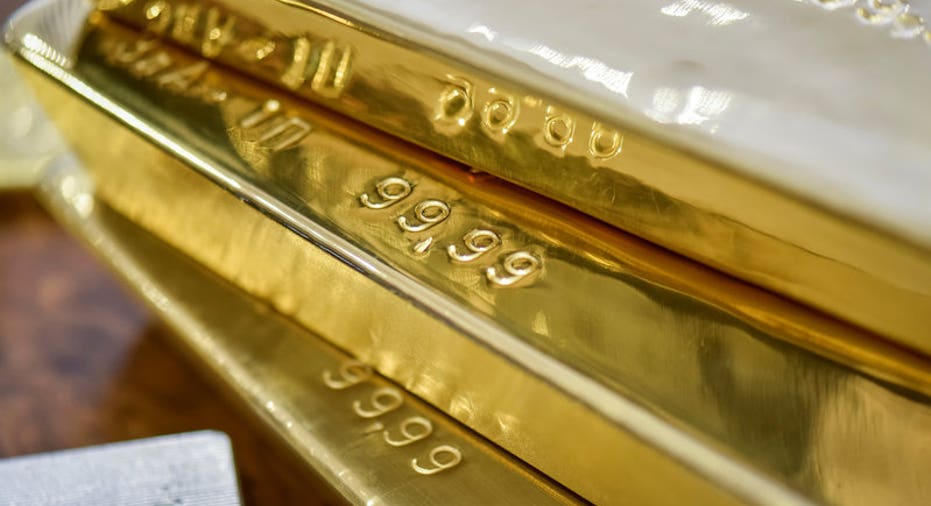Nowhere to run? Trump shock raises doubts over investor havens

LONDON – In a year when politics has defied forecasts and uncertainty reigned, the traditional "safe haven" status of assets like bonds, gold and the Swiss franc has weakened, raising doubts about the existence of any true refuge in stormy markets.
Those "safe" assets initially strengthened on Wednesday as Republican candidate Donald Trump stunned the world by winning the U.S. presidential election against the odds.
But the price moves quickly faded. In the case of sovereign bonds, they completely reversed.
This, like the weeks and months following the Brexit vote, suggests that such seismic events have a limited effect on investors' risk appetite in a world where returns have become increasingly hard to eke out since the financial crisis.
At the same time, there's a broad consensus that central banks' post-crisis stimulus has run its course, and a growing well of opinion that the 35-year bull market in bonds is over. That means bonds are more likely to fall than rise, while higher yields diminish the allure of gold.
In the case of Britain's surprise decision in June to leave the European Union, investors bailed out of relatively risky assets like stocks for the safety of bonds and gold, but it didn't take long for that to switch.
Gold rose in the run-up to and immediate aftermath of the referendum, but in the months that followed it fell 10 percent from a peak hit after the vote. Bond yields around the world returned to hit multi-month highs as investor demand subsided.
"Some of the traditional safe havens now not be as safe as we thought they were," said Michael Metcalfe, head of global macro strategy at State Street.
"With question marks over Trump's fiscal policy and the impact on U.S. yields, perhaps cash will be more at the top of people's minds," he said.
The benchmark 10-year U.S. Treasury yield initially slumped to 1.71 percent as Trump swept to victory, but as European trading got underway it roared back to 1.97 percent, the highest since March. =rr>
Rising U.S. bond yields and market-based interest rates offer investors relatively attractive rates of return for holding liquid and safe cash-like securities, even if the Federal Reserve desists from raising rates next month as had been widely expected before Trump's win.
The three-month dollar Libor rate is currently 0.88 percent, more than twice the 0.40 percent and -0.33 percent offered by sterling and euro. => => =>
GOLD COULD SHINE
Markets are likely to consolidate in the coming weeks as the dust settles. Investors will want to see who Trump nominates to key positions in his cabinet such as treasury secretary and secretary of state.
They will also want to see how relations develop between Trump's administration and the Federal Reserve. How they play out could affect key issues, including how long Fed chair Janet Yellen be in situ and whether the Fed's policy path be revised, to either a slower or faster pace of rate hikes.
Kenneth Broux, head of corporate research, FX and rates at Societe Generale, argues that the surge in U.S. yields and steepening of the yield curve - where the gap between longer and shorter-dated borrowing costs widens - shows investors are bracing for higher U.S. government spending and therefore inflation.
That could be good for gold - traditionally a hedge against inflation - which hit a six-week high of $1,337 an ounce . It was last up 1 percent, a fraction of its initial rise. =>
"Gold is the obvious safe haven. Other than that, maybe the Swiss franc and yen. But gold is the only one really, especially if inflation expectations rise," Broux said.
HSBC's global asset allocation team on Wednesday cut its exposure to emerging markets across the world. At the same time it raised its investments in the 3-5-year part of the U.S. Treasury curve, and added to its gold position.
"For years, the U.S. has been a bastion of relative policy stability but the election result brings this stability into question," they wrote in a note to clients.
DOLLAR DOUBTS
But rising U.S. yields are a double-edged sword for markets. Insofar as they anticipate higher interest rates, they could be interpreted as a harbinger of stronger U.S. growth, which would support global growth.
On the other hand, higher U.S. yields and a stronger dollar could imperil domestic growth, as well as making it more expensive for borrowers in emerging markets who have loaded up on trillions of dollars of debt to service that debt. Thus global growth is at risk.
Ironically, looser fiscal policy as advocated by Trump may suit the Fed, because it wants to raise interest rates.
"The greatest irony of this latest outpouring of populism may well be a set of policies which favor capital over labor, and look more Keynesian than neo-liberal," M&G Investments said on Wednesday.
This puts the dollar's "safe haven" status, such as it is, in question, and investors were quick to sell the greenback against most major currencies on Wednesday.
The Swiss franc and euro rallied more than 2 percent to 0.955 francs per dollar and $1.1299 , respectively, and the Japanese yen jumped more than 3 percent to 101 yen per dollar . => =>
The yen gave back a good chunk of its gains, while the euro and franc reversed course completely.
If investors aren't tempted by the traditional "safe havens", there may be other parts of the market they want to park their cash to benefit from the new American administration.
The U.S. healthcare sector no longer has Hillary Clinton breathing down its neck, defense stocks are rising on an anticipated increase in European and U.S. defense spending, and mining stocks are outperforming on the back of gold's gains.
London-listed precious metals miners Fresnillo and Randgold Resources rose more than 9 percent and 7 percent, respectively, on Wednesday.
(Reporting by Jamie McGeever; Editing by Pravin Char)



















